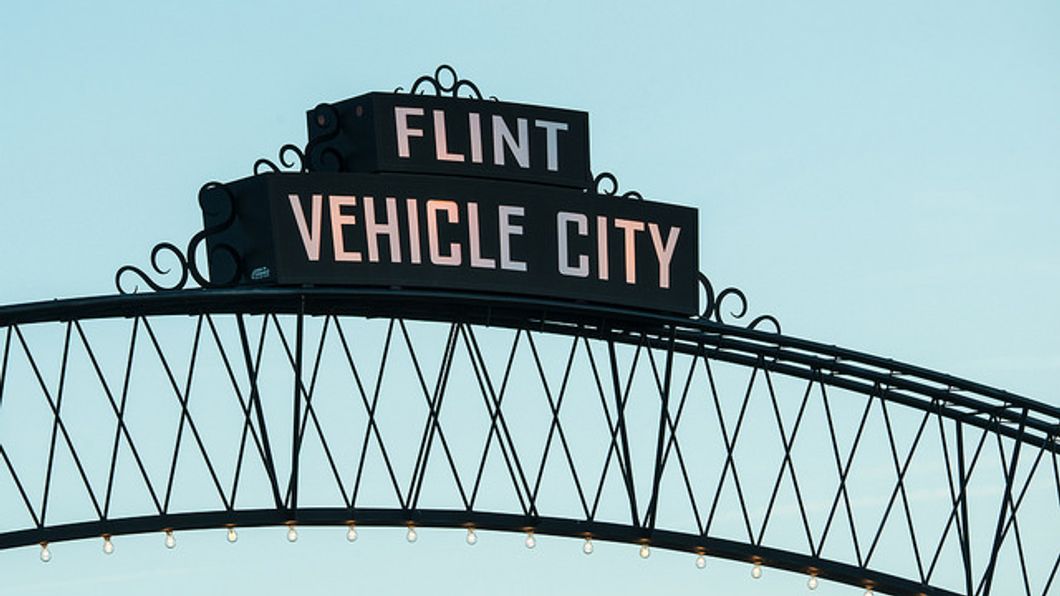America was first introduced to the town of Flint, Michigan in 2014. It was then that our eyes were opened to the disaster unfolding in the town. Residents complained of discolored, funny tasting water after the city had switched to a new water source, the Flint River.
The switch was made because of worsening financial strains the city had been under since GM downsized and industry began to leave the town in the eighties.
In 2015 the EPA and Virginia Tech tested the water and found dangerous levels of lead in the water at Flint homes.
For a detailed refresher on the crisis, read the CNN timeline of events here.
For months Flint residents had no water source other than bottled water shipped in to the town. After class-action lawsuits had settled, the town was left with a promise: Michigan would replace the 18,000 service lines with new pipes by 2020.
In April Michigan officials announced the water quality is safe once more; as a result, Flint ended its' program that provided bottled water and water filters to citizens.
For Flint residents, though, the struggle hasn't ended.
Many residents still don't have the new pipes promised by the state. Further, and probably more damaging, any trust between Flint residents and their local and state officials has been decimated.
Now, with the city's water bottle program ending, residents are left unsure of where to get their water. Most say they don't trust the water, and the science is still inconclusive, so they may not be wrong.
Even worse, no one seems to care anymore.

When the crisis first reached a fever point, camera crews and news outlets flocked to the city. Stories of residents' health issues flooded social media networks as celebrities vowed to help the city.
For a while, they did. But as new crises rose up, most of the camera crews went elsewhere.
The stories of residents faded off social media as new victims of government mishandlings and public catastrophes took their turn in the media spotlight. Flint popped back into headlines in April when the city announced the water was once again safe but failed to make the splash it did when it was first in a crisis.
We abandoned Flint faster than GM and industry did in the eighties. Why?
The truth isn't comfortable for most people to manage. Flint is not the kind of town that people want to fix. In other words, it is a low-income, predominantly African-American town.
They are poor in Flint, and so somehow people seem to care for a shorter amount of time. We don't want to acknowledge that in America, one of the wealthiest countries in the world, people are left without a water source they can trust.
We don't want to think about the legionnaires outbreak caused by the lead water in 2015 that left at least twelve dead. We don't want to think about the increase in miscarriages and fetal deaths due to the government's mishandling and inaction in one of Michigan's poorest areas.
And so, four years after the crisis began, we just don't. We don't think about the residents of Flint, because if you aren't in Flint, then you are able to not think about the struggle for water.
If you are not the one who cannot use tap water to cook for and bathe your family, then you can afford to not think about it. But the people in Flint don't have that luxury.
They are left stranded, without a government to trust, and without water that isn't from a bottle. To add insult to injury, they don't even seem to have the public support from outside Flint they once did.
Some outlets still cover Flint as it faces more than just a water crisis; National Geographic recently covered a Flint prom as the city is closing one high school due to low attendance.
Outlets still write about Flint here and there, but the stories are buried behind the politics of the day. The headline spotlight has left Flint. We, as Americans, cannot forget about Flint.
We, as Americans, cannot turn our backs on poor communities simply because they are often left voiceless. We, as Americans, need to face the uncomfortable truths of our country and address them head-on.
















